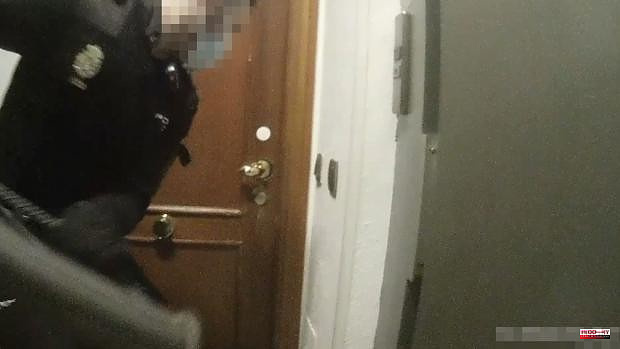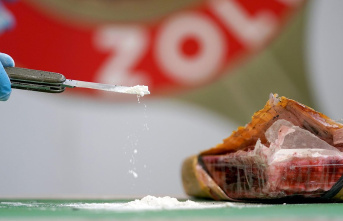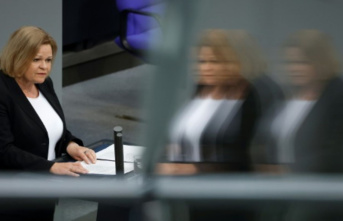The head of the Investigating Court number 28 of Madrid, Jaime Serret, has opened an oral proceeding against the six agents of the National Police who in the early hours of March 21, 2012 threw down the door of a house in Madrid's Lagasca street to prevent an illegal party They will answer for a crime of trespassing before a Jury Court.
In an order dated June 10 and to which ABC had access, the judge explains that "the facts are practically undisputed" and the debate is on whether or not they constitute a crime. As the resolution summarizes, at five in the morning the agents appeared at the house “to avoid violating current regulations” against covid, which expressly prohibited a party like the one that was being celebrated.
"Despite the fact that the occupants expressly refused to open the apartment door and identify themselves and that the agents did not have judicial authorization," the judge explains, the commanding agent "ordered his subordinates to tear down the door, which they carried out, accessing its interior and arresting its occupants».
Before, he mediated an unsuccessful negotiation, as illustrated by the video of the police action revealed by ABC, in which for almost half an hour the agents repeatedly asked the occupants of the house to cease their behavior, under penalty of a crime of disobedience. One of the young women who was inside acted as a spokesperson for the group, denying access to the agents, although formally, the person who lived in the house was another young man, who is the one who exercises the private accusation in this case.
For the agents, "there is no crime" because "they acted correctly since a flagrant crime was taking place: serious disobedience, ecological crime, coercion", which "justified entering the home". Meanwhile, the Prosecutor's Office estimates that although such a flagrant crime did not occur, the agents perceived it that way, that is, it was a mistake.
"These legitimate exculpatory arguments, stating that there is a justification for the conduct of those investigated, belongs to the substance of the facts that are going to be prosecuted and their appreciation corresponds to the sentencing court, in this case, the Jury Court," says the Serret judge.
Regarding the specific position of the Prosecutor's Office, he states that "it is not a formally constituted accusation, since by estimating that there is an error of a vincible type in the accused, it supposes sanctioning the facts as a reckless crime in his case, a modality that does not exist in the crime of trespassing", so that "he does not request any penalty or any security measure". He considers, in any case, that it is the sentencing court who must assess whether or not the Prosecutor's Office is right.
At the time, the instructor was aligned with the Prosecutor's Office and agreed to exonerate all the agents involved except the commander who gave them the order to intervene. However, the Provincial Court of Madrid, by appeal, revoked its decision and ordered the prosecution of the six police officers. Now, after the presentation of the accusation and defense briefs, all that remains is for the date to be set for them to respond before the Jury Court.












